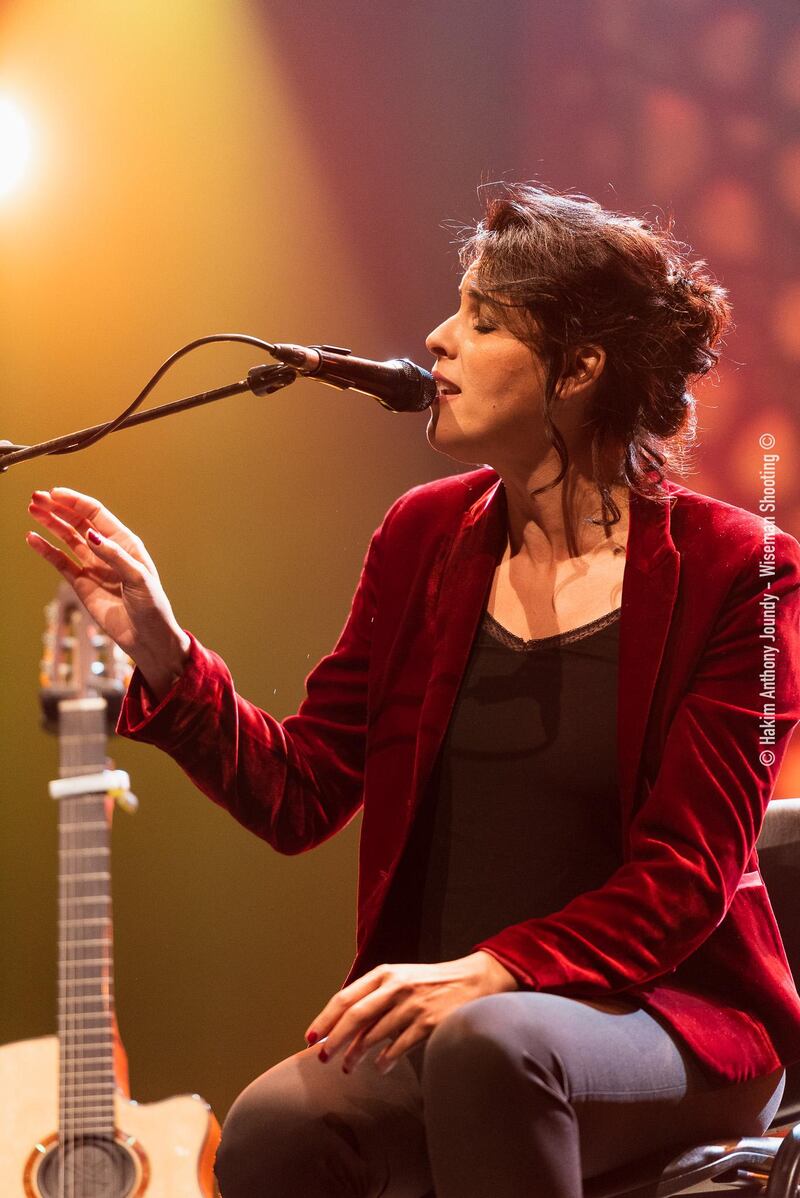Souad Massi doesn't care where you find her records, as long as they are available. This was her response to suggestions of being unfairly lumped in the World Music category in both online and music stores.
Speaking before her Mawazine Festival performance in Morocco last week, Massi says the designation irks occasionally. But, ironically, with the loosely named genre becoming a commercial power house of its own she has benefited from the label.
“It used to concern me at first,” she says from Rabat. “I just didn’t understand how you can lump all these different heritages and cultures together with all its nuances. There was a fear that I would be kind of lost in all of that. But the genre is big, with its own festivals and other events, so I don’t mind. The people are listening to the music, that’s the main thing.”
A fight for expression
That’s Massi’s ultimate goal, for her message to be conveyed and received. It sounds relatively simple enough, but Massi fought for her expression ever since emerging from the Algerian music scene in the early 1990s.
Barely into her late-teens at the time, she was already fronting the trailblazing rock band Atakor. Influenced by the stadium rock of U2, the band's western influences were an irritation to scores of extremists in Algeria who wasted no effort in chiding her on her way to guitar lessons in Algiers in addition to having the band's equipment routinely stolen.
But it was Massi’s fiercely political lyrics, championing intellectual and creative freedom that really drew their ire.
With the 1990s viewed as Algeria’s “Black Decade”, a time when the raging civil war included the murders of a host of prominent musicians, Massi fled to Paris where her talent was almost immediately spotted and where she signed a record deal.
Stripped of her band and in a new city, Massi recalibrated musically and launched a solo career with songs more in the vein of Joni Mitchell than the hard rock of Atakour.
Her lyrics were in line with the transformation, which went from pointed declarations to almost abstract poetry and metaphors.
Her superb 2001 debut album Raoui, remains a landmark with its serene mix of French and Arabic folk, which had her hailed as the region's new cross-over star.
Despite her acclaim, and the fan base that snapped up her five albums that followed, Massi found herself, once again, in a position where she had to fight for her voice and her artistic vision.
Massi's important new album
Where before it was mostly a physical ordeal in the street of Algiers, this time around it was fought in the boardroom of her record label in Paris.
Signed to Universal at the time, Massi recalls how label representatives blanched when she told them her next album, El Mutakallimun, would be sung solely in classical Arabic with lyrics taken from writers ranging from sixth century pre-Islamic poet Zuhayr bin Abi Sulma to 20th century bard Aboul-Qacem Echebbi – who was widely credited for writing the final two verses of Tunisia's national anthem.
"They declined to release it. They didn't understand why I was dedicating the album to Arabian history and culture," she says.
"They didn't see how important it is for me and for us as a culture and I felt that what I was doing was going against the general 'agenda' regarding the Arab world. "So I challenged them. I got myself out of the contract and then I produced the album myself."
A woman on the moon
After El Mutakallimun won widespread acclaim, Massi undertook a year-long tour that stopped in Dubai as part of the Wasla Festival in February. She says her experience on the road and in the studio inspired a new appreciation of humanity.
___________________
Read more:
The poetic licence of Arab indie scene leader Tania Saleh
Pop star Mohamed Hamaki says Egypt's World Cup failure wasn't his fault
Mawazine 2018: Marwan Khoury on showcasing the depths of Arabic music's history
___________________
“It is like travelling to the moon. When you look down do you know what the view is?” she says. “It is a land without borders. That’s how I view my role as an artist, which is to use whatever work and talent I have to bring people together. “So when I am here in Morocco or Algeria, I just feel like I am playing in Africa. It’s a really good way for me to live my life.”






